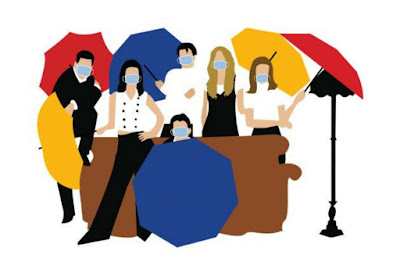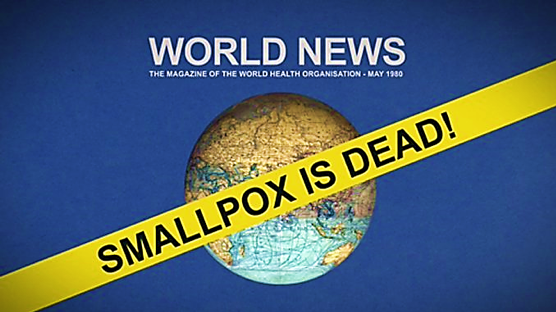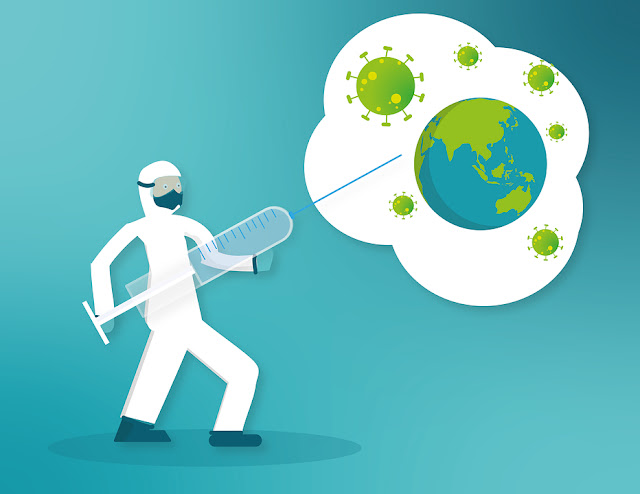Is Contact Tracing App A key to your Privacy?
What if you had a code
that could access every detail of your life, your phone, your house, even your
bank account?
Would you go around sharing that code with everyone you know?
I don’t think so. People are pretty defensive when it comes to
sharing personal details because privacy unlocks their life. But what if your
own Government uses these small details against you? You would never want that,
trust me. According to the words of famous American Whistleblower Edward
Snowden, "No matter who you are, every day of your life you are sitting in
a Database just ready to be looked at."
To know how data can really be misused let us talk about some real-world examples.
These are just a few incidents I came across; the internet is
full of such cases.
In the current scenario of Covid-19 wrecking havoc, a lot of
countries have thought of a technical way of tracking down the patients- by the
use of contact tracing app. Contact tracing helps prevent the spread of virus
by proactively finding people at higher risk than others due to potential
exposure. It is not a new concept as it has been done in some form or the
other, mainly by asking people about the places they have been to and the people
they have met over previous few weeks in order to determine the source of the
infection and possibly to stop the spread of infection to other people.
However, the memory of a person is volatile and tracing cannot be completely
relied on the recalling power of a person. And in the era where technology can
do wonders, who cares about such a small problem? Thus the technology came with
a modernized solution- using digital records of a person to track his movements
and interactions.
Sounds scary, right?
A contact tracing app works through Bluetooth signals that your
phone transmits and receives very often. Users who download the app to their
phone need to feed some information. The app runs in the background of the
phone and on coming in contact with other phones within the range, the phones
exchange a code via Bluetooth. If you come across someone who is infected, it
will send you alerts.
Some apps like those under Switzerland and Germany have a Decentralized Design which means that the data remains on the phone of the
user. Some find it advantageous as it is less vulnerable to hacking or
exploitation of data. Other apps including Australia’s COVIDSafe, India’s
AarogyaSetu app and UK National Health Service’s app have a Centralized Design
which means the data will be stored on a government server and it will be accordingly
analyzed to perform contact matching. Privacy experts have claimed that
centralized approach might result in leakage of sensitive details of the users.
In an interview with Indian Express newspaper former Supreme
Court judge B.N. Srikrishna said that it was utterly illegal to make people use
the app. Nikhil Pahwa, editor of internet watchdog Medianama said that India
has a terrible history of protecting privacy, referring to Aadhar- the most
controversial biometrics based identity database. He said, “Any app that tracks
who you have been in contact with and your location at all times is a clear
violation of privacy.”
To the relief of privacy and security experts, India released
the source code of AarogyaSetu on 27th of May, 2020, thus
making it ‘open-source’. Being open-source, it ensures that the application
does not misuse data. Also, it brings the source code to the innovating minds
which can help build right standards and more accurate technical specifications
for the app. But still, is the data safe? Can it not be used maliciously
against the people?
And the most important question,
 “What will happen to the
data after the end of Covid-19 crisis?” Nothing in this age of advancements is
truly anonymous and the data can be used to invade one’s privacy.
Arguing that you don't care about the right to privacy because you have
nothing to hide is no different than saying you don't care about free speech
because you have nothing to say.
“What will happen to the
data after the end of Covid-19 crisis?” Nothing in this age of advancements is
truly anonymous and the data can be used to invade one’s privacy.
Arguing that you don't care about the right to privacy because you have
nothing to hide is no different than saying you don't care about free speech
because you have nothing to say.
Even if we ignore the data misuse and threat, there is a
question that still remains unanswered. Is the app reliable? Study suggests
that the virus can be slowed down if about 60% of the population uses them.
Signal strength can vary according to the situation. Also what if someone
downloads the app and provides false data? You will never know if you came
across someone like that. Apps obviously exclude anyone who doesn’t own a
smart-phone like older people and migrants- the ones who are the most at risk.
But that does not change the fact that contact tracing is really
beneficial (only if it used effectively) as watching over the contacts of an
infected person will help these contacts get immediate care and treatment and
will prevent further transmission of the virus.
Surely we are at risk, but all we can do is Fight for Data Privacy and Support Freedom of Information.
What do you , think about the CONTACT TRACING APP , are they still necessary ?
Poll By Clinic Captain






Cool✌🏻✌🏻
ReplyDeletechamatkaaar
ReplyDeleteNicely researched and insightful piece on this increasingly important concern of today's world.
ReplyDeleteThankyou so much Mr. Pratik
DeleteYou've chosen really an amazing topic! All the best to your team!!
ReplyDeleteMore such amazing contents are on its way!
Delete👍
ReplyDelete